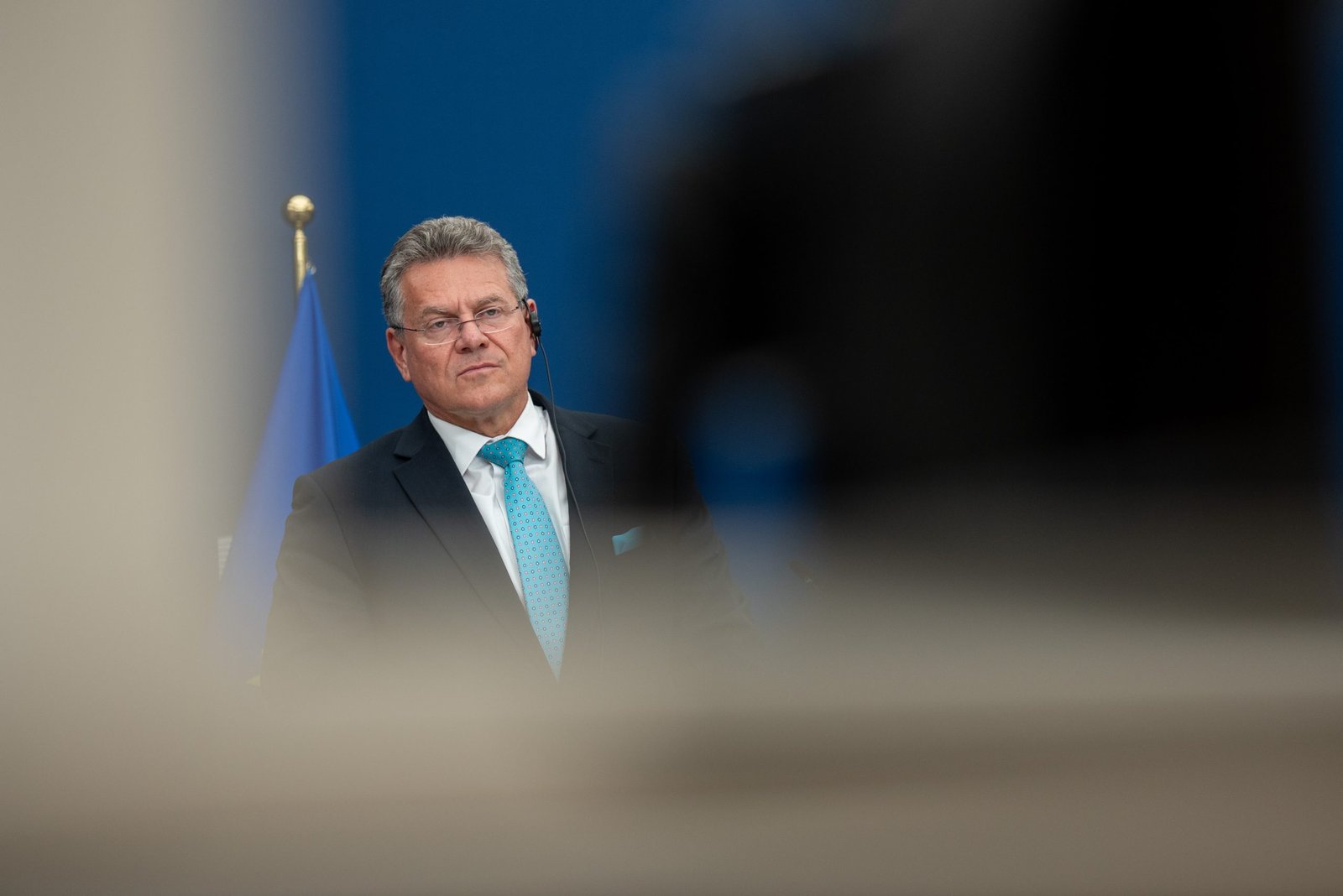The EU Commission has welcomed an executive order from US President Donald Trump, which paves the way to lower levies on European car exports to the US, part of the transatlantic trade truce struck over the summer.
In an executive order signed Friday, Trump offered the implementation of tariff exemptions from Monday to “aligned partners”, who clinched framework pacts to cut Trump’s “reciprocal” tariffs, which includes the EU.
The order deemed it “necessary and appropriate to implement the tariff modifications” struck in a framework deal with the EU in July, including reducing levies on EU car exports to the US from 27.5% to 15% and eliminating tariffs on some other goods.
Maroš Šefčovič, the EU’s trade commissioner, praised the White House’s decision on Saturday as a “crucial step” in implementing the EU-US deal, struck in July and put in writing two weeks ago.
“By jointly honouring commitments, we can deliver lasting benefits on both sides,” he wrote on social media.
Trump imposed a tariff of 25% on all car and parts imports in March, leading to a cumulative rate of 27.5% for European exports. Additionally, he threatened to impose 30% blanket tariffs on all EU exports in April.
The US government agreed to reduce tariffs on EU goods to a flat rate of 15% in return for the elimination of some tariffs on US exports and EU foreign investment in America in a non-binding EU-US framework agreement in July.
The reduction should have taken effect for EU car exports on 1 August, but a corresponding American order to reduce the tariffs on car exports was not issued.
Following further negotiations, a written clarification, finalised two weeks ago, indicated that a retroactive reduction of tariffs would require the EU Commission to formally initiate the elimination of tariffs on all US industrial goods and a range of agricultural products.
The Commission held up its side of the bargain last week, though the proposal still has to be approved by member states and the parliament.
The incoming tariff level of 15%, while still above the pre-Trump level, offers some relief to Europe’s auto sector, which has been struggling under Trump’s protectionist measures.
The United States is the EU’s second-largest market for cars after the UK, with vehicles worth €38.9 billion shipped across the Atlantic last year, according to the European Automobile Manufacturers’ Association, a Brussels-based industry group.
(cp)





